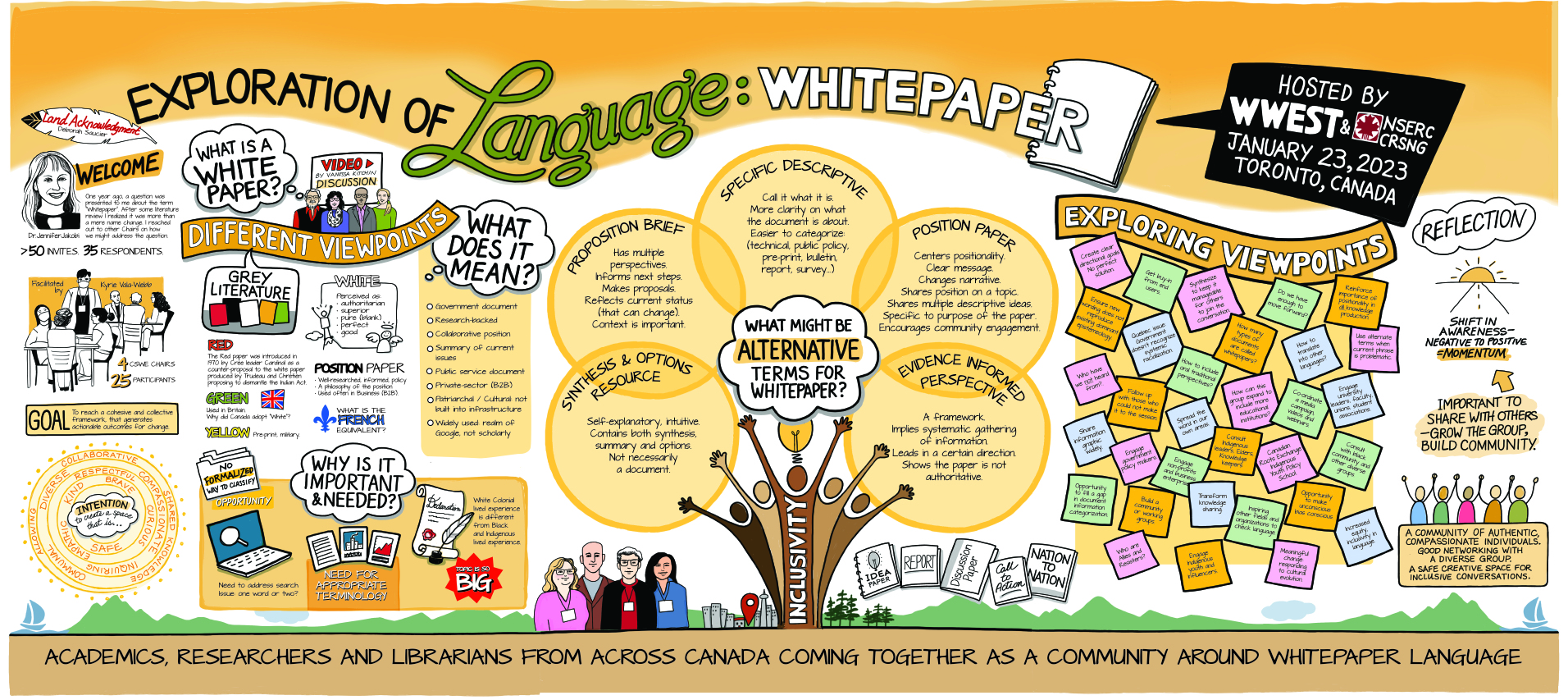
Rethinking “Whitepaper”
Towards Inclusive Language in Academic and Professional Spaces
Why Language Matters
The words we use shape our understanding of the world and can reinforce certain biases, including those rooted in racialized and colonial history. The term “whitepaper”—originally coined to describe authoritative government and policy documents—carries specific historical connotations, particularly in Canada. For example, the 1969 White Paper proposed policies that marginalized Indigenous voices, igniting a powerful Indigenous-led response in the form of the Red Paper. The Red Paper reasserted the importance of Indigenous self-governance and reinforced the principles of treaties. Rethinking the term “whitepaper” is a crucial step in fostering reconciliation and a more inclusive approach to language.
Our Commitment to Inclusive Language
At the heart of reconciliation is the need for language that respects all communities. By moving away from terms like “whitepaper,” we align our practices with the United Nations Declaration on the Rights of Indigenous Peoples (UNDRIP) and support the Truth and Reconciliation Commission’s Calls to Action (TRC). In reconsidering racially charged terminology, we aim to create materials that support intercultural respect, understanding, and equity.
The Implications of “White” in Language
Terms like “whitelist” and “blacklist” have already been reevaluated for their problematic racial implications, and alternatives are widely adopted. The term “whitepaper,” however, continues to be widely used despite its connotations of power and racial hierarchy. Changing this term is one step toward fostering inclusivity and dismantling language that may unintentionally perpetuate exclusivity. Let’s take this journey together by advocating for language that reflects equality, unity, and respect.
Evolving Naming Practices for Inclusivity
Naming practices must evolve to represent our diverse communities accurately and respectfully. Inclusive terminology should describe information clearly, ensuring cultural appropriateness and inviting broader engagement. By choosing neutral, descriptive language, we can create a more welcoming and inclusive environment for all.
Advocating for Conscious Language Choices
We are committed to exploring and adopting inclusive alternatives to the term “whitepaper.” Naming practices are powerful tools for creating change, and by reconsidering traditional terms, we move closer to a language that respects all backgrounds. Though a universal replacement may not exist, collaboratively developing naming standards that prioritize inclusivity and respect is a meaningful step forward.
Join Us in Promoting Inclusive Language
We invite you to be part of this change. By embracing conscientious language choices, we can help create a society where diversity is acknowledged and valued. Together, let’s redefine outdated terms and build a more inclusive future, one word at a time.
